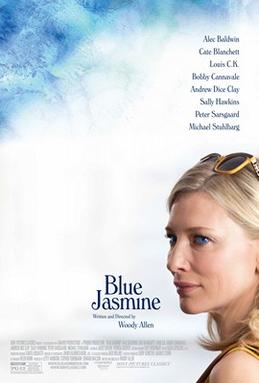
STREAMING SERIES ON EQUAL RIGHTS
Posted April 18th, 2020 at 10:07 amNo Comments Yet
SERIES IN REVIEW

RIGHTEOUS RIGHT TAKES ON LIBERAL LEFT IN GENDER EQUALITY FRAY
By PETER THOMAS BUSCH
What role could be more challenging for an actor playing either side of the moral divide, often within the same character, than to play the conservative right political organizer leading the fight against the Equal Rights Amendment.
Cate Blanchett stars as Phyllis Schlafly, the right wing political thinker who organized the counter-feminist lobby.
The Equal Rights Amendment to the United States Constitution passed both Houses of Congress but the bill did not obtain ratification by the required 2/3 of State legislatures.
Schlafly was able to turn enough political support against the Constitutional Amendment.
This true story of the battle within feminism is told in a streaming miniseries produced by FX Productions, Mrs. America (2020).
The nine part miniseries premiered on streaming service Hulu on April 15. Three episodes are available for steaming on Apple TV.
Rose Byrne plays Gloria Steinem. Steinem has been a vocal advocate for gender equality rights and reproductive freedoms. Steinem was an instrumental part of the second wave of feminism that began in the 1960s. First wave feminism dealt mainly with the right to vote and property rights.
Byrne portrays the biopic character as having a personality as well as an intellect and a charismatic on air presence that made her such a central figure in the feminist movement.
Uzo Aduba plays democratic presidential candidate, Shirley Chisholm. And Margo Martindale plays political insider, Bella Abzug. The two talented supporting actors get a lot of screen time as the miniseries depicts the divisive nature of politics even among the feminists.
Directorial duties are shared among Anna Boden, Ryan Fleck, Amma Asante and Laura de Clermont-Tonnerre. Boden and Fleck direct together the first two episodes. Asante directs the third episode that has premiered for streaming.
Two parallel narratives are intertwined to depict the very different sides of the intellectual battle within gender rights, female equality and reproductive freedom. A black out screen is used a bit too frequently between scenes to mark major transitions in the storyline.
The end result of the ERA campaign has been foreshadowed in the miniseries already as women emerged two decades later much more politically organized on the political right and the political left. American politics also became more polarized by the formation of the conservative right, known as the Moral Majority, that often espouses religious values in support of their political views.
Mrs. America is a substantial production with several supporting actors used in each scene. The miniseries initially is presented as a Cate Blanchett project, but Byrne is given more and more screen time over the three episodes as the Gloria Steinem character is gradually revealed to be more and more influential in the feminist side of the ERA campaign.
The political intrigue in Washington and the broken democratic system provides the back story to the political gender equality issues.
Byrne adopts the complete feminist persona, while make-up and costume finish the transformation from actor to biopic personality.
Byrne’s character and the pro-ERA lobby are depicted in busy crowded political campaign offices, while Blanchett’s character is at home and on the road lobbying Washington.
John Slattery portrays Fred Schlafly. Slattery does a good job portraying a conservative sixties family man supporting an ambitious spouse, with some reservations seemingly tinted by stereotypical gender views.
The Schlafly’s have their moments of self-doubt, but the happy conservative couple are content in a kind of dreamy suburban life supporting each other’s independence within the upper middle class family structure.
The actors are cast well together, except for Elizabeth Banks who so far only appears in cameos throughout the first three episodes. Banks looks a bit uncomfortable with the minor background parts.
Banks had previously played Laura Bush, the wife of United States President George W. Bush in Oliver Stone’s biopic W. (2008), starring Josh Brolin as W.
Banks also had supporting roles in The Hunger Games franchise (2012-2015).
The Mrs. America production replicates that 1970s look and atmosphere through costume design, the use of those old analogue phones, in various colors, and retro dialogue.
The directors show a good vision for the miniseries by introducing the right wing conservative anti-feminist narrative, but then gradually weaving in the truth behind gender equality rights.
Blanchett shows Schlafly as a bit too uncomfortable in her own skin when confronted about her successful use of hyperbole to stir the crowds in her favor. Schlafly was not against gender equality, but instead believed that the legislative power given to law makers by the proposed Constitutional Amendment would eventually result in laws favoring men over women.
Blanchette has again adopted a new complete persona this time making the conservative voice looking like the moral voice, but then having some nasty doubt when real life gender issues do occur.
When meeting with a group of political fundraisers, Schlafly no sooner says that she has never been discriminated against on the basis of gender than she is sent out of the room to fetch pen and paper to take meeting notes, when she had been under the impression that the meeting had been called to hear her out about her political campaign bid.
Blanchette is always able to set a bench mark for her new acting persona and then every once in a while, slip past to the other side of the moral divide.
Schlafly was convinced the ERA would be detrimental to gender rights, and Blanchett shows her character’s resolve, but also some of her unspoken doubts about the righteousness of her opinion.
Despite her political beliefs that seem in retrospect somewhat misplaced, Schlafly is depicted as having considerable leadership and political organizational skills independent from her role in the family.
Each episode has a substantial conclusion while also having a continuous storyline throughout the episodes, instead of that annoying cliffhanger ending that becomes a bit frustrating through the course of a series.

DELIGHTFUL ACTING REVEALS SURPRISINGLY IMMORAL HUMAN TRAITS
Originally Published on September 5, 2019
By PETER THOMAS BUSCH
Cate Blanchett has the unique ability to perform characters on both sides of the moral divide, often within the same performance.
The talented actor can play reigning monarchs as equally well as unsavory former spouses.
Hollywood’s leading lady subtly bends character traits from film role to film role to create a unique performance for each production.
In The Talented Mr. Ripley (1999), Blanchett plays an innocent bystander who witnesses the good side of the diabolical behavior of an impersonator, played by Matt Damon.
The main narrative of jealousy and betrayal unravels on the screen unbeknownst to Blanchett’s character performed in another narrative.
The innocent bystander character becomes a bit more entangled in the main narrative when Blanchett plays listless housewife, Kate Wheeler. Wheeler, who has become stymied as a boring housewife, falls for the excitement of being connected to a pair of bank robbers, played by Bruce Willis and Billy Bob Thorton, in Bandits (2001).
Blanchett’s acting art is dialed one stop down when she plays an unscrupulous former partner in The Shipping News (2001). Petal is a rough trampy woman who sells her daughter to an illegal adoption agency.
The morality of the characters Blanchett performs gets a bit worse before it gets better. In Notes of Scandal (2006), the married public school teacher, Sherba Hart, has an affair with one of her pupils.
Blanchett shows how life often becomes deeply flawed by mistakes cast upon individuals by the people around them.
In The Lord of the Rings: Fellowship of the Ring (2001), Galadriel ever so briefly falls to the dark powers of the ring while giving counsel to Frodo.
Blanchett prefers the more challenging roles during which the telling of the darkness often comments as much about the accepted truths as the telling of the light.
The actor’s artistic talents even carried her across gender roles when she performed one of several character sketches of folk singer Bob Dillon in, I’m Not There (2007).

Then in Carol (2015), the actor portrays a woman vilified by society for seeking companionship with other women.
Blanchett has been one of the most entertaining actors in a generation partly because of the delightful unpredictable morality of her performances from film project to film project. These performances contribute artistic value to the film beyond the femme fatal image of classic screen legends.
Blanchett’s performances are often presented from the perspective of the unheroic character. Instead of a heavy moralization, performances tend to subtly connect human frailties with the personality traits that get the character in trouble.
Blanchett satirizes social manners, often setting off the other characters as satires while rationalizing her behavior within social norms. The contrast of manners provide a rich texture to the film.
Carol goes through a metaphysical trial as a person whose morals offend society. But through the performance, her husband’s opposition seems absurd. The husband, played by Kyle Chandler, ultimately wins the custody battle over the couple’s child, but he is made to look the outsider in doing so.
Carol happily moves on after her divorce, while everyone else is made to look tragic.
Blanchett has such a beautiful range as an actor that she is able to also play heroic characters such as the English Queen in Elizabeth (1998). Blanchett reprises the role in Elizabeth: The Golden Age (2007). The Queen is portrayed as a heroic character, even when fallen vulnerable.
Blanchett shores up her character’s on-screen integrity by lashing out at the unheroic acts of the people around her. Sir Walter Reilly is a coward compared to the Queen’s bravery in defending against the Spanish. A maiden is a traitor when contrasted to the Queen’s trust shared with members of her court.
The Academy of Motion Picture, Arts and Sciences awarded Blanchett the best supporting actor award for her portrayal of classic Hollywood screen star, Kathrine Hepburn, in the Aviator (2004). Hepburn is portrayed as a good woman with an interesting personality, but a bit too high brow, upper middle class America to be matched with Howard Hughes from Texas.
Leonardo DiCaprio plays the eccentric, driven innovator, Hughes.
Hepburn and Hughes have a substantial romance, but Hughes becomes a bit of a rock star with international fame as an aviator.
Blanchett shows remarkable range as an actor while adopting the full Hepburn personality, voice, stammer and body language for the film role.
Blanchett received a second Oscar for her leading role as a New York socialite in, Blue Jasmine (2013). Jasmine falls from grace and has to move to San Francisco to live with her sister for financial reasons.
Blanchett’s character portraits show a rough masculine side while also portraying a brilliant feminine side with grace and beauty. Performances are seamless masterpieces so believable as to make the air of fiction disappear between the screen character and the audience.
